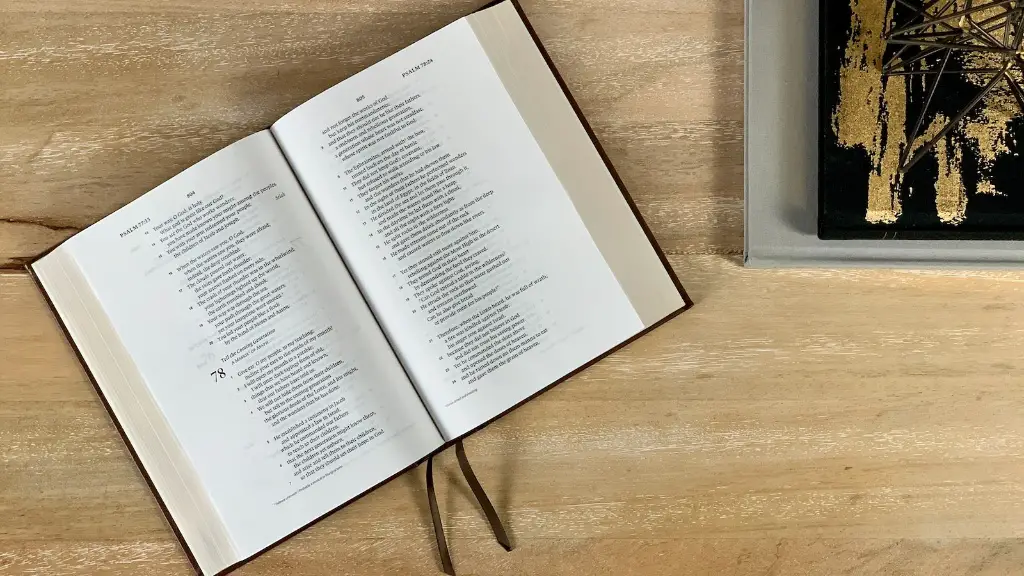Poetry vs Other Forms of Literature
Poetry is often described as a unique form of expression, one that transcends literary boundaries and creates powerful images and symbolism out of mere words. It is not uncommon to hear people talk about their love for poetry and their admiration for its beauty and mystery. But how exactly is poetry different from other forms of literature?
Some of the key differences between poetry and other forms of literature can be found in its structure. While other forms of literature often rely on plot structures, full sentences, and detailed descriptions, poetry often uses fewer words to evoke powerful meaning, emphasizing rhythm and sound over lengthy descriptions. Poetry is also often composed within a certain form, such as a sonnet or haiku, which adhere to specific guidelines regarding the number of lines, words, and syllables.
Thematically, poetry is also distinct from other literature. While novels, stories, and essays are often plot-driven, poetry can drift from topic to topic and still maintain its power and strength. Phillip Larre, professor of English at the University of Wisconsin-Milwaukee, explains, “Poetry is more like music, where themes, feelings, and images are explored rather than concrete stories and linear arguments.”
In terms of symbolism and imagery, poetry has an advantage over other forms of writing. In a poem, words can be used to communicate feelings, even without explicitly saying them, by using evocative language to create a visceral response in the reader. Additionally, poets often make use of metaphor and extended analogy to create powerful images and mental connections that can challenge readers to think or feel deeply.
Poetry is also distinct from other literature because its true meaning can sometimes be difficult to determine. While other forms of literature often have clear moral conclusions, poems often offer a more open-ended interpretation, asking the reader to explore multiple interpretations and carefully consider the words.
Finally, a key difference between poetry and other forms of literature is the importance of line and verse. Poetry often relies on its line and verse structure for rhythm and Meter. These elements are key to the interpretation of the poem, and its meaning can often be altered by how the lines are arranged and how the words are said. This makes poetry a unique form of literature and art, unique in its rhythm, style, and interpretation.
Difference between Poetry and Ballads
Though both poetry and ballads are considered forms of literature, they differ from each other in terms of structure and purpose. While many ballads conform to the traditional stanza structure, which includes four-line verses and three-line refrains, poetry can take on any form. For example, a single line can become a poem when it contains a powerful, emotional message. Furthermore, ballads often feature stories, while poems can be lyrical in style and are meant to be an expression of the poem’s author, as a form of self-expression or storytelling.
In addition, ballads often rely on syllable or rhyme schemes, which are used to create a musical and entertaining storytelling form, while poems usually take a more poetic approach to language, often incorporating complex metaphors and symbols. Finally, ballads from different cultures often tell stories from their own unique perspective, as opposed to poems, which can come from any culture, any author, and at any stage of life.
Difference between Poetry and Prose
While both poetry and prose can be used as a form of expression, they differ in terms of structure and purpose. Prose is characterized by its use of full sentences and paragraphs, as well as full stories, while poetry is usually made up of shorter, shorter lines, often relying on meter and rhythm to convey meaning. Additionally, while prose often follows a plot structure, poetry can often be abstract and more open-ended, sometimes delving into multiple topics and using symbolism and imagery to create meaning. Finally, prose is often considered a more factual form of writing, while poetry can be more subjective, often focusing on author’s feelings, perceptions, and perspectives.
Difference between Poetry and Drama
Though both poetry and drama are considered forms of literature, there are some key differences between the two. One of the biggest differences between poetry and drama is the way the text is presented; whereas poetry is usually written in verse form to create a lyrical, musical quality, the text in a drama is meant to be spoken out loud and is often accompanied by action and emotion. Additionally, while poetry is often used as a form of self-expression and exploration of feelings, drama is often structured around a plot, characters, and dialogue.
Finally, while poetry often relies on symbolism and imagery to create meaning, drama often uses language to its fullest potential, shifting between different characters, conflicts, perspectives, and themes to create a dramatic narrative. In this way, drama has the potential to create a powerful experience for its audience, allowing them to explore not only the story, but also their own emotions and thoughts.
Difference between Poetry and Songs
Though both poetry and songs are forms of literature, there are some key differences between the two. Most notably, poems are characterized by their use of language, often emphasizing meter and rhythm, whereas songs rely more heavily on sound and music. Additionally, while poems are often used as an expression of feelings and emotion, songs are often story-driven, relying on a catchy hook or chorus to captivate its audience.
Finally, while poems often use metaphors, symbols, and imagery to convey meaning, songs rely more heavily on the words to drive the meaning home. Additionally, while poetry often has an abstract quality to it, songs usually have a clear structure and narrative. This means that while a poem can often be open to interpretation, a song usually needs to have a direct, straightforward message in order to connect with its audience.
Difference between Poetry and Essays
Essays and poetry are two distinct forms of writing, but there are several similarities between them as well. Both are forms of rhetorical writing, where the author attempts to convey a message or opinion in order to influence their reader. However, the structure of essays and the structure of poetry differ from one another. While essays are typically written in prose, structured with a linear narrative, and contain discussion points and conclusions, poetry is often written in verse, relying on meter and rhythm, and is not bound by a traditional structure.
Also, essays are often written to make an argument or to draw a conclusion, while poetry does not necessarily need to have a specific point. As poet W.H Auden once said, “Poetry makes nothing happen”. This means that the meaning of poetry is open to interpretation, often relying on the reader’s own personal experience to help create a new story or draw a new conclusion.
Difference between Poetry and Short Stories
Both poetry and short stories have a great potential to tell powerful, emotionally driven stories. However, they are two distinct forms of literature and do not always follow the same structure. While short stories typically have a linear structure, often utilizing narrative points and established character arcs, poetry is often structured around rhythm, meter and line breaks. Additionally, while the structure of a short story is often determined by the genre, the structure of a poem can be determined by the poet.
Interestingly, articles, opinion pieces, and blog posts can also be composed into poetry, adding a new element of creative expression to these forms of writing. Further, poems often focus on an individual’s state of mind, relying on abstract concepts and evocative language to create a unique narrative. Short stories, on the other hand, often rely on plot points and an external conflict to drive the story forward.




